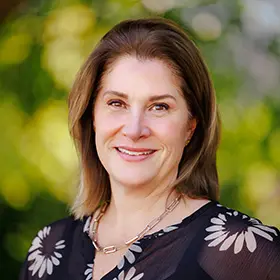
Insights
January 29, 2025
The Psychology of Retirement
In Financial Planning, Retirement, Wealth Strategy

One of my favorite tasks as a financial planner is to help clients plan for retirement. We gather data and run Monte Carlo simulations and tax analyses, but often that planning process runs much deeper than asset allocation and withdrawal strategies.
Recently I had the pleasure of meeting with a couple in their early fifties. They had saved carefully, invested well, and had a clear sense of their monthly expenses. Our plan suggested they had enough funds to stop working. They both nodded and said they were relieved that our analysis matched their estimates. My next question for them was, “What has been keeping you from retiring?”
They both smiled, looked at each other, and shrugged. As a neutral observer, this response seemed like a rather casual reason to continue to work. The decision to retire is not entirely based on financial calculations; it brings up psychological questions as well.
Retirement is not an event – it’s a transition
When we think of the traditional retirement party, we might imagine the engraved gold watch and the rite of passage. We might picture the first round of golf in Hawaii. One day you’re working, maybe with a title and an office ― the next day, you have total freedom and control over your time. But this picture doesn’t tell the whole story of the experience of retirement for most people. Psychologically, retirement isn’t an event; it’s a transition, and it often starts much earlier than the proverbial “retirement party and gold watch” moment.
The retirement transition is complicated. It reflects uncertainty. It involves planning, decisions, relief, excitement, regret, loss, a sense of accomplishment, fatigue, and rest. If you have an expectation that retirement is a purely happy event, you may be denying some of those mixed feelings, and as a result you might not ever feel entirely ready.
It is human nature to resist leaving the familiar when we don’t know what the future will be, even if we’ve outgrown our current surroundings. We might be holding onto a sense of identity. Younger retirees sometimes mention the difficulty of explaining their retirement process to older parents for whom retirement may have been more defined. You might be afraid of losing financial security, community, or status. You might on some level worry that retirement highlights mortality.
How do people successfully transition from one life phase to another? They do it gradually.
I interviewed several recent retirees. Former legal secretary and award-winning poet Robert Thomas commented:
“I retired from my day job in 2021 (I still have my “night job” of writing poetry). Retiring during the peak of COVID provided a certain kind of transition as I was already working mostly from home, and not commuting probably had reduced my “work hours” by at least ten hours a week. The main thing is there was not a dramatic change…You may be deluding yourself if you think after you retire you’ll have time to do ‘all the those things you always planned to do.’ My advice is to start doing all those things before you retire. Maybe that means working 30 hours a week instead of 40…but don’t wait until retirement to follow your dream.”
After decades of a successful career, it isn’t easy to break the habit of pushing to accomplish goals, produce, and meet deadlines. In the years before stepping away from work, many people begin to disengage slowly, over time. You might decline projects with long-term timelines. You might defer policy decisions to colleagues who will remain on the job. Instead of thinking of this new phase as being less relevant, think of your legacy. How can you help the next generation prepare to take the reins? The joy of mentorship and the security in your accomplishments can replace the striving for future goals.
Around the time of retirement, perhaps even years before your last day and continuing into your years after work, consider playing with different activities outside your profession the way you might try an internship or master class before entering a career. This can help you build a new sense of identity and purpose not focused on your “day job.”
Letting go of expectations
Terry Mitchell, Professor Emeritus in Management and Organization, writes for the University of Washington Retirement Association about the fear of unpredictability in retirement. “There are major surprises. The stock market is uncertain, a virus comes along, you have an illness or physical limitation to yourself or a family member. Stuff happens. You struggle sometimes. Some things are harder than you thought.”1 Many of these adjustments have been faced by previous generations or your peers. We can expect the unexpected and adapt in the same way we do while working.
You may face some disenchantment. In a survey of retirees, Mitchell and his colleague Tommy Lee heard repeatedly that retirees can quickly run out of the things they had planned to do immediately.
Mitchell recommends leaning into these moments of uncertainty. Life doesn’t include many periods where we don’t have obligations and structure. Approaching the unexpected with curiosity can give you the psychological strength to grow. And having a trusted financial team to support you helps provide confidence as your plans change and evolve.
Curiosity brings clarity
For successful transitions, it helps to have a sense of your own preferences. Considering the bigger picture, Gregg Levoy writes in his article “In Retirement, Don’t Rush to Redesign Your life – Listen to It” for Psychology Today: “Letting go of a career isn’t letting go of your true work in the world, not if you have what people call ‘a mission statement for your life.’”2
Take the time to ask yourself:
- What motivates you to retire? Are you running to a new lifestyle or from your current lifestyle?
- If you were going to live forever, what would you change about your work?
- How does the fear of aging affect this transition? How can you address this fear more directly?
- How will you know, psychologically, when you have worked enough in your current career?
- What gives you a sense of security?
- What motivates you to work?
- What would you regret not doing in your life?
- What did you learn from your parents about retirement?
- If you have a partner, how are you planning together for retirement?
Not your first rodeo
Retirement is more than a single transition from working to not working. You might choose to pursue many different activities and phases. The freedom from the structure of work gives you the opportunity for more change.
You’ve likely been through transitions before, like leaving home, starting college, launching a career, getting married, or becoming parents. Each of these probably felt both risky and exciting. They probably did not go according to plan, and you found a way to adjust and grow. The good news is, in retirement, you have the benefit of your life experience to help.
A new you
Our careers are widely varied, from person to person and from season to season. We should envision our retirements as unique as well, with room for a range of emotions and for change and growth over time.
Leaving your career can be a change to part of your identity, but it doesn’t change who you are. Without the commitment of work, you have more freedom to define yourself. The opportunity to find your own meaning for your days can be daunting, but is an invitation to new adventures. You can uncover a new side of yourself, and you can create a new community to support you. We are always happy to help.
Resources:
- Find a financial planner who can help you build a plan with room for change. We welcome you to contact our team at Coldstream Wealth Management to start the conversation. https://www.coldstream.com/what-we-do-for-you/wealth-management/financial-planning/
- Designing Your Life by Bill Burnett & Dave Evans (New York: Alfred Knopf, 2018)
- UW Retirement Association, https://retirees.uw.edu/
- Mitchell, Terry. “The Retirement Process: A Psychological and Emotional Journey,”University of Washington Retirement Association.
- Levoy, Gregg. “In Retirement, Don’t Rush to Redesign Your Life—Listen to It,” Psychology Today.
*All of Coldstream’s staff shall attain the required licenses and designations necessary for his/her position. Certified Financial Planner Board of Standards Inc. owns the certification marks CFP® and Certified Financial Planner™ in the U.S.
Insights Tags
Related Articles

October 9, 2025
Year-End Tax Planning Checklist

October 3, 2025
Caring for Aging Parents


September 29, 2025
End-of-Life Planning: An overview of the documents you need

